Summary
The Dark State
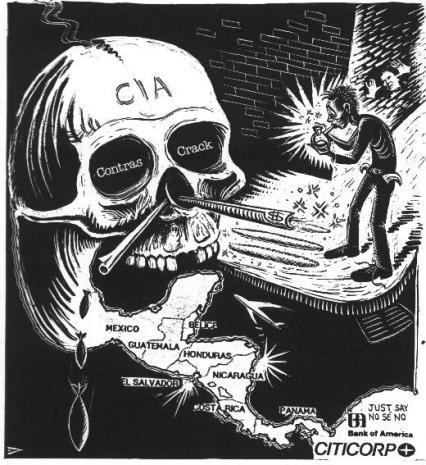
From a historical point of view
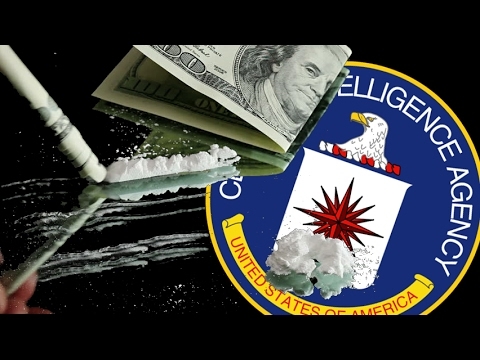
En poursuivant votre navigation sur ce site, vous acceptez l'utilisation de cookies. Ces derniers assurent le bon fonctionnement de nos services. En savoir plus.
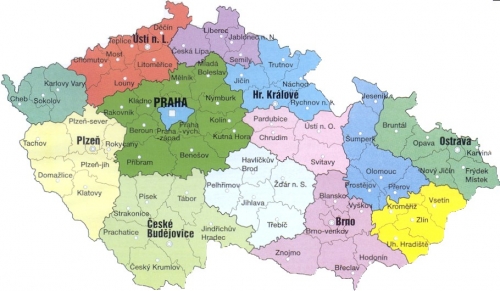
par Thomas Ferrier
Ex: http://thomasferrier.hautetfort.com
Les élections législatives tchèques qui se sont déroulées les 20 et 21 octobre 2017 ont permis la victoire d’Andrej Babis, à la tête du mouvement ANO 2011, un candidat milliardaire représentant la droite libérale et qui a fait campagne notamment sur le refus d’accueillir des migrants. Babis, comparé par certains à un Berlusconi tchèque, a obtenu 29,64% des voix (+ 11 points) et 78 sièges (+31). Il n’a certes pas obtenu la majorité absolue, qui est de 101 sièges (sur 200) mais il est en mesure de bâtir une coalition autour de son mouvement.
Le parti civique démocratique (ODS), dirigé par Petr Fiala et connu pour ses positions plutôt eurosceptiques et conservatrices, avec 11,32% des voix (+ 3,6 points) et 25 sièges (+9), pourrait donner une majorité parlementaire à Babis dans le cadre d’une coalition, sachant que ce dernier a indiqué en revanche qu’aucune alliance avec l’extrême-droite, à savoir le Parti de la liberté et de la démocratie directe (SPD) de Tokio Okomura. Dans ce contexte, Babis s’opposera nécessairement au président français Macron et maintiendra certainement le soutien de son pays au groupe dit de Visegrad.
La volonté de renouvellement des électeurs s’est également exprimée par le succès du parti nationaliste SPD, qui obtient 10,64% et 22 sièges pour sa première élection législative, confortant les résultats des élections européennes. L’existence de ce parti, qui ne participera certes pas à une coalition au pouvoir, ne peut qu’encourager Babis à maintenir une ligne dure sur les questions migratoires. Les Pirates tchèques (Pirati), phénomène transnational aux succès en dents de scie, ayant quasiment disparu d’Allemagne après quelques succès mais ayant en revanche réussi en Islande à peser sur la politique nationale, entrent au parlement avec 10,8% des voix (+8,1 points) et 22 sièges.
L’émergence de ces nouveaux partis, en plus du succès de l’ANO de Babis, se fait au détriment des partis traditionnels. Les communistes, qui étaient encore bien représentés, tombent à 7,76% des voix (- 7,15 points) et 15 sièges (-18). Les sociaux-démocrates du CSSD avec 7,27% des voix (- 13,09 points) et 15 sièges (-35) sont littéralement laminés. Ces deux partis de gauche réunis perdent en tout près de 20 points, ce qui est considérable. La peur du laxisme migratoire prêté à la gauche a été déterminante pour expliquer son effondrement électoral.
Mais la droite classique, représentée par les démocrates-chrétiens et le mouvement TOP 09, ne s’en sort guère mieux. Le KDU-CSL (chrétien-démocrate) n’obtient que 5,8% (-0,8 points) et 10 sièges (-4) tandis que TOP 09 obtient 5,31% (-6,7 points) et 7 sièges (-19).
Enfin le mouvement modéré des « Maires et indépendantes », s’appuyant sur son enracinement local, obtient 5,18% des voix et fait rentrer au parlement 6 députés.
Les petites formations politiques sont également victimes du succès d’ANO et autres des formations émergentes. Avec 1,46% des voix (- 1,74), les Verts (Zeleni) perdent tout rôle politique, de même que le Parti des droits civiques, de gauche modérée, qui doit se contenter de 0,36% des voix (- 1,15). Ils subissent tous le rejet de leurs thématiques dans un contexte de forte angoisse identitaire.
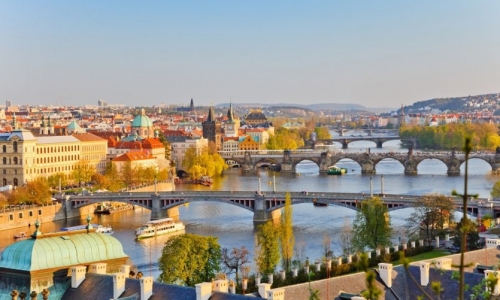
Avec l’émergence du SPO, les autres partis de droite radicale, qui étaient nombreux à se présenter, sont marginalisés. Le mouvement Svobodni (« Parti des citoyens libres »), eurosceptique, tombe à 1,56% des voix (- 0,91). En revanche le mouvement Rozumni, eurosceptique, obtient 0,72% (+ 0,45). Enfin le mouvement des Réalistes (Realisti), là encore eurosceptique et anti-immigration, obtient 0,71% des voix.
Les formations encore plus dures, comme l’ultra-radical DSSS (Parti des travailleurs et de la justice sociale) avec 0,2% des voix (- 0,66), l’Ordre de la nation (RN-VU) avec 0,17%, comme le Bloc contre l’islamisation (0,1%) ou comme les Républicains de Miroslav Sladek (SPR-RSCMS) avec 0,19% des voix, sont maintenues à des scores dérisoires, sans parler du Front national tchèque (117 voix en tout) ou de « La nation ensemble » (300 voix). Mais toutes illustrent néanmoins la volonté tchèque de se préserver du globalisme.
25,7% des électeurs thèques ont voté pour des formations nationalistes ou souverainistes opposés à l’Union européenne comme à l’arrivée de migrants, ce qui est considérable. Certains des partis proposant une offre eurosceptique seront certainement associés au nouveau gouvernement autour de la figure d’Andrej Babis (ANO), qui est la seconde plus grande fortune du pays. Ce dernier n’entend pas se faire dicter sa politique par quiconque, et certainement pas par Bruxelles. Babis ne tombera certes pas dans l’euroscepticisme, pas davantage que Viktor Orban en Hongrie n’y a cédé, mais va accroître le pôle de résistance d’Europe médiane. Le succès autrichien de Sebastian Kurz devrait renforcer également ce pôle.
Il serait peut-être que les dirigeants d’Europe occidentale, et par conséquence les responsables de Bruxelles, comprennent que la politique qu’ils proposent est impopulaire et contraire à l’intérêt véritable des Européens. L’unité européenne ne sera possible qu’en trouvant un terrain d’entente, c’est-à-dire en refusant explicitement les « valeurs » du globalisme.
Thomas FERRIER (Le Parti des Européens)
17:06 Publié dans Actualité, Affaires européennes, Politique | Lien permanent | Commentaires (0) | Tags : actualité, politique, europe, affaires européennes, tchèquie, république tchèque, élections tchèques |  |
|  del.icio.us |
del.icio.us |  |
|  Digg |
Digg | ![]() Facebook
Facebook

Une interview surréaliste. Le Figaro (article payant) raconte, dimanche 22 octobre, son entrevue avec Gérard Depardieu prévue pour évoquer la sortie prochaine de son nouveau livre, Monstre (Le Cherche-Midi). Problème : Gérard Depardieu avait envie de parler de tout sauf de son livre.
Le journaliste raconte avoir eu du mal à tenir son entretien, Gérard Depardieu passant d'un sujet à l'autre. L'acteur a notamment évoqué les raisons qui l'ont poussé à quitter la France et à devenir russe, en janvier 2013. "Contrairement à ce que disent les journalistes, ce n'est pas pour la fiscalité que je me suis barré. Non. Si c'était pour ça, je me serais barré bien avant ! Je payais plein pot, je ne me plaignais pas", a-t-il lancé, avant d'enchaîner :
Ce que je ne supporte pas, et c'est pour ça que ce pays m'emmerde, c'est de voir que les Français sont tristes comme la mort.
Gérard Depardieuau Figaro
Dans une longue tirade, l'acteur continue de critiquer les Français. "Ils n'osent même plus regarder leur terre puisqu'ils en ont honte. La France est un très beau pays, mais où les gens sont perdus", a affirmé la star de 68 ans, avant de conclure sur le sujet : "Nous avons dépassé Orwell : nous sommes dans La Faune de l'espace de Van Vogt, où plus personne ne comprend rien. Le suffrage universel, c'est fini : nous sommes dirigés par Apple et Zuckerberg."
05:18 Publié dans Actualité, Affaires européennes | Lien permanent | Commentaires (0) | Tags : gérard depardieu, france, europe, affaires européennes |  |
|  del.icio.us |
del.icio.us |  |
|  Digg |
Digg | ![]() Facebook
Facebook
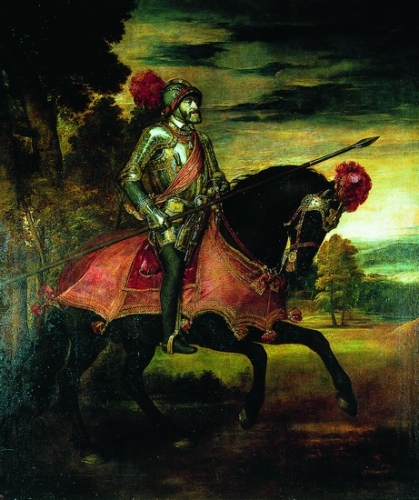
L’historien Denis Crouzet brosse un portrait saisissant de Charles Quint dans le contexte de la fin de la chrétienté.
Quand le pape Benoît XVI a renoncé à la charge pontificale en février 2013, le philosophe Alain Finkielkraut compara le geste du pape allemand à celui de l’empereur Charles Quint. Le 25 octobre 1555, dans son palais bruxellois, le vieil homme s’adressait ainsi à la cour impériale : « Je me sens maintenant si fatigué que je ne saurais vous être d’aucun secours, comme vous le voyez vous-même. Épuisé et brisé comme je le suis, j’aurais des comptes à rendre à Dieu et aux hommes si je ne renonçais à gouverner. » Tout comme Benoît XVI, l’homme pleura amèrement après cette annonce, puis se retira dans un monastère.
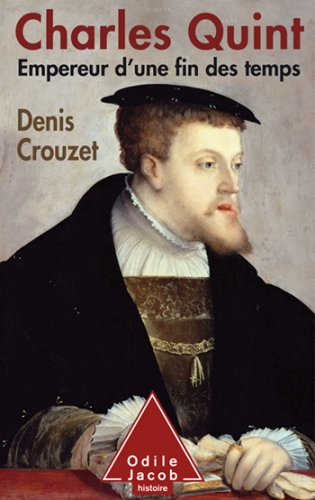
L’un et l’autre ne peuvent se comprendre qu’à travers la mission qu’ils estimaient avoir reçue de Dieu. L’historien Denis Crouzet nous la décrit dans son dernier essai. Un ouvrage dense, à la lecture exigeante, mais d’une richesse incomparable. Plutôt que de céder à la facilité du genre biographique, l’auteur nous transporte sur une courte période allant de 1545 à 1552. Sept années d’un règne qui en compte trente-six. L’époque est l’un des moments charnières de l’Histoire européenne et de la civilisation : dans sa lutte contre les princes protestants réunis dans la ligue de Smalkalde, Charles Quint semble avoir remporté la victoire à Mühlberg en 1547. Mais en 1552, le traité de Passau établit définitivement le célèbre principe : « Tel prince, telle religion. » Il s’agit du jour où « tout bascule », puisque l’Europe chrétienne n’est plus, déchirée entre catholiques et protestants.
Certes, l’empereur Charles Quint vit une époque qui sait le glorifier, mais ce personnage impénétrable cachait en lui une peur face au tragique de l’Histoire : « Une épreuve dramatique toujours recommencée, durant laquelle ce qui a été gagné est sous tension d’être perdu, bien vite. » Plus Bourguignon que Habsbourg, il est la parfaite illustration du mot de Boileau : « Rarement un esprit ose être ce qu’il est. » Mais il savait aller de l’avant, sous la contrainte, imitant par ailleurs le Christ fait homme. Stoïque, mais chrétien.
Christophe Dickes
04:27 Publié dans Histoire, Livre, Livre | Lien permanent | Commentaires (0) | Tags : histoire, charles-quint, saint empire romain de la nation germanique, saint empire, livre, denis crouzet, 16ème siècle, europe, espagne |  |
|  del.icio.us |
del.icio.us |  |
|  Digg |
Digg | ![]() Facebook
Facebook
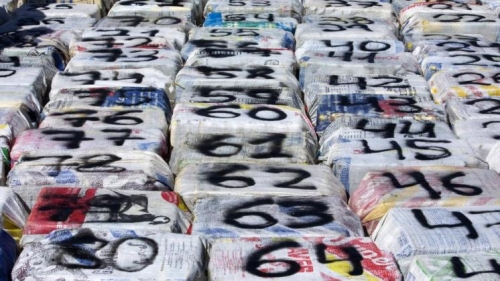

From a historical point of view

01:05 Publié dans Actualité | Lien permanent | Commentaires (0) | Tags : drogues, cia, états-unis, occident, politique internationale, géopolitique |  |
|  del.icio.us |
del.icio.us |  |
|  Digg |
Digg | ![]() Facebook
Facebook
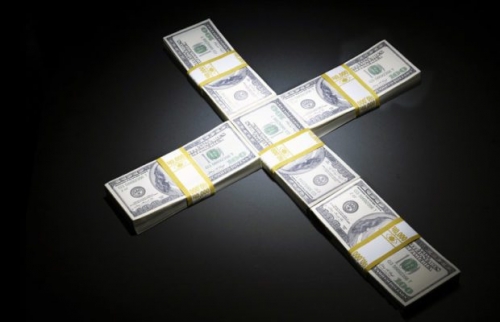
Ex: http://www.usa.forzanuova.info
In the modern world, and particularly in the “West”, we have slipped into a devastating pattern of deconstructionism. We’ve deconstructed with pseudo-intellectual lines of attack all of the traditional institutions and paradigms that have held our society together; gender, race, sexuality, religion – the list could potentially be perennial. Anything and everything that held together a people within a group identity has been deconstructed, thereby removing its inherent value and purpose.
Religion is perhaps the greatest example of this and certainly the battleground in which we first encountered the deconstructionist. With the advent of the modern era, with science and the values of enlightenment, we have “disproved” many previously held religious axioms. Most notably of course, and an example with which everyone is familiar, the belief in Darwin’s evolutionary theory as an antithesis of creationism. Once science can effectively disprove the opening chapter of the Holy Bible, the door has been wedged open for the great deconstructionist to begin extracting the value from the rest of the book.
Never mind the fact that the bible contains many lessons from which one might come to lead a better life; never mind the fact that much of the bible should be understood as metaphor as opposed to magic and miracles; once they can defeat one area in the field of battle, they will not stop until there remains no value in a concept.
Thus the Christian way of life was brought down in the west – and I lament this, despite practising a different faith myself. I lament the passing of this system due to the simultaneous loss of group identity it has caused as a side effect, or perhaps the former was a catalyst for the latter. Whatever the cause of the process, the action and reaction, the facts remain the same; the loss of group identity on a community and national level has occurred in direct proportion with the decline of religious faith.
The reason for this is quite simply. Our societies and communities, on a micro and macro level, were built around the Church. The Church was the focal point of the community, a place where one’s fellow kith and kin would gather at least once a week in unified faith. Every major event in our lives was in the domain of the Church; birth, marriage and even death. We celebrated Easter together, the Harvest together, Christmas and Lent and so on and so forth. Even social issues that have now been taken over by the state – with charity being the greatest example of this – were previously under the remit of the Church.
British society is a great example of this. For better or worse, the Church and faith in the Christian religion held society together, even offering legitimacy to the royals and morale for the armies. Whilst I am not a Christian and I believe that a different faith and ethics system is preferable, that’s just personal taste – the focus point of this discussion isn’t necessarily the particular religion, but the system of society that collective belief in a religion generally brings about; cooperation, a sense of belonging, goodwill to one’s neighbour, charity, asceticism.
Another example of this, and perhaps useful for a “compare and contrast” exercise, is the Islamic world. The Islamic world has soundly rejected atheism as a theory and has instead embraced a more traditionalist, more conservative approach to their faith, which in many cases has become almost reactionary as a response to Western-backed atheism. Whilst many of you may not agree with the values of Islam, not one of you can deny that their collective faith gives Muslims a strong sense of identity that many of us in the Western world sorely lack.
The great lie that the deconstructionists fed to us is that one can either be rational, or spiritual. These concepts are, to those who seek to remove the latter, absolutely mutually exclusive. The implication being that by entertaining a degree of spirituality one is by definition, lacking in a logical understanding of the world and their environment. This is false; very few theists claim that their religion should be practised like a child with blind faith in Santa. The belief in a “man in the sky” is not a prerequisite for theism – on the contrary, many theologists will confirm that one can be an ardent Christian without believing literally in the book of Genesis, for instance.
Yet this is how we’ve been taught to view such issues, in grossly absolutist terms that do a disservice to those who do follow a spiritual path. We are given a black and white interpretation that says you’re either with science – and by definition against religion – or against science – and by definition, stupid. The mockery directed at those who practise faith, that sometimes extends to borderline social ostracism, has been weaponised by the deconstructionists to deprive the collective of its identities.
The free-market also has a lot to answer for in this regard. The pressure by free-marketeers to loosen traditionally restricted trading hours, most notably the Sunday Trading Hours laws that have been introduced in the United Kingdom, have turned what used to be time for reflection, community, charity and family, into yet more time for materialist pursuits and mindless, atomised consumerism. In this way, a religiously traditional society is a great threat to the free-market, as it restricts the number of hours the giant capitalists have to make money.
More broadly, neo-liberal Western capitalism has been one of the driving forces behind the challenges to traditionally spiritual societies – hence why Islamic societies fight so vehemently against the doctrine. The proponents of such doctrines – ironically the “conservatives” who claim a Christian foundation – only have one belief system, one faith, and one God: capital. Money and only money is their raison d’etre. They live for no higher purpose, no greater collective mission and nothing other than the accumulation of capital – what a sad existence that must be!
But its effects on Western societies have been momentous. Many in Europe often claim Islam is the fastest growing religion in the continent and, of course, they’re not wrong, but one cannot overlook the fact that the atheistic are the fastest growing demographic more generally. And in any case, it is difficult to separate atheism from the umbrella term of “religious groups”, given their undying profession of eternal love for and their steadfast belief in capital – in a way, this in itself amounts to a religion. It certainly has characteristics of religion that they themselves overlook.
As we know, the belief in money and the accumulation of capital as the only notion to hold inherent value serves no greater purpose than to remove collective identities. Whether it be from the right, the neo-liberal capitalists, or from the left, the individualist social democrats, the prevailing political paradigm of our time is money above all, and identity below everything.
Thus it can be said that, rather than the irreligious being the fastest growing demographic in Western societies, it is in fact those bereft of collective identity who are truly prevailing. As I alluded to earlier on in this piece, I’m not a Christian, and nor do I believe that the rise of Islam is a good thing purely because it’s a religious doctrine combatting an irreligious doctrine. Rather an atheist West than a theist East – yet I can’t help feel somewhat envious of those in the Islamic world, for they have retained their belief in the spiritual and their comradeship of the collective.
Perhaps the West, as opposed to their perennial cycle of teaching foreigners liberal democracy, should take a step back and ask what lessons we could learn from them.
00:40 Publié dans Actualité, Philosophie, Théorie politique | Lien permanent | Commentaires (0) | Tags : actualité, philosophie politique, néolibéralisme, philosophie, théorie politique, politologie, sciences politiques |  |
|  del.icio.us |
del.icio.us |  |
|  Digg |
Digg | ![]() Facebook
Facebook
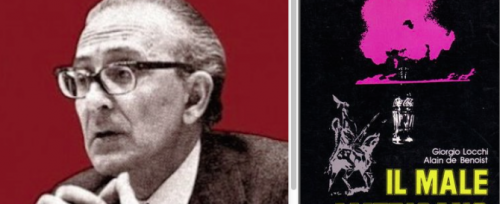
Ex: http://www.secoloditalia.it
Oggi ricorre l’anniversario della scomparsa di Giorgio Locchi, morto a Parigi, dove viveva dagli anni Cinquanta, il 25 ottobre del 1992. Oggi Giorgio Locchi, giornalista, saggista, scrittore, non è molto conosciuto in Italia, soprattutto dai giovani, ma fu uno dei pensatori che più incisero sulla comunità anticomunista europea (a lui non piaceva la definizione “destra”) dagli anni Settanta in poi. Poco si sa della sua vita privata, e quello che sappiamo lo dobbiamo alla frequentazione sistematica da parte di suoi “discepoli” italiani, ragazzi provenienti dal neofascismo degli anni Settanta. Questi ragazzi, infiammati dal sacro fuoco della politica e dalla voglia di cambiare questo mondo, andavano a Parigi, a Saint Cloud, dove Locchi viveva e si guadagnava da vivere come corrispondente del quotidiano romano Il Tempo. Tra questi ragazzi ricordiamo senz’altro Gennaro Malgieri, Giuseppe Del Ninno, Mario Trubiano, Marco Tarchi e altri. In ogni caso, per quanto misconosciuto in Italia, Giorgio Locchi fu un po’ il “padre nobile” dei grandi rivolgimenti culturali europei nella famiglia della destra (scriviamo così solo per convenzione), quando dal neofascismo puro si passò alla dimensione culturale, a una Nuova Destra, come poi in effetti fu chiamata, la Nouvelle droite, che guardava oltre il regime fascista ma pensava piuttosto alle potenzialità, peraltro in parte messe in pratica, da quella filosofia e da quella dottrina europeista e antiegalitaria, ancorché modernizzatrice, che avrebbe ancora oggi tasto da dire e da dare alla nostra civiltà un po’ decadente (a voler essere generosi). Poi, la figura di Giorgio Locchi venne allo scoperto in Francia, ma per merito degli italiani, come ricorda Del Ninno. Locchi fu tra i fondatori del Grece, Groupement de recherche et d’études pour la civilisation européenne, creato nel 1968 insieme ad Alain de Benoist, intellettuale e scrittore francese molto noto, che fu con Locchi sin dall’inizio, pur essendo de Benoist più giovane.
Giorgio Locchi era nato a Roma nel 1923, la famiglia aveva contiguità col mondo del cinema e dei doppiatori, lui stesso era amico della famiglia di Sergio Leone; scuole al classico del Nazareno dove, pur essendo lui completamente acattolico, conservò stima e gratitudine per i padri Scolopi, che avevano sempre rispettato la sua libertà di pensiero e che gli garantirono sempre massima autonomia di giudizio e di critica. Proseguì gli studi, orientati particolarmente verso il germanismo, la musica, la scienza della politica, ma soprattutto verso gli studi della civiltà indoeuropea, argomento sul quale ci ha lasciato un libro e numerosissimi scritti. I ragazzi del Fronte della Gioventù e del Msi degli anni Settanta e Ottanta furono letteralmente folgorati dal suo libro Il male americano (Lede editrice), dove Locchi aveva previsto tutto ciò che non sarebbe accaduto ma che sta ancora accadendo. Il fatto di essere usciti sconfitti da una guerra devastante, per Locchi, non annichilisce le idee che a quella guerra portarono. Che infatti sopravvivono nelle più disparate forme e sfumature. Dopo la realizzazione del Grece, che oggi chiameremmo un think tank, la Nuova Destra comincia a farsi conoscere non solo in Francia e in Italia, ma un po’ in tutta l’Europa occidentale. E a proposito di Europa, Locchi volle andare a Berlino nei giorni della riunificazione delle Germanie. La firma di Locchi da quel momento, che utilizzava anche lo pseudonimo di Hans-Jürgen Nigra, iniziò ad apparire sulle riviste vicine alla Nouvelle Droite, come Nouvelle Ecole, Elements, Intervento, la Destra, l’Uomo libero e naturalmente il nostro quotidiano Secolo d’Italia. Frattanto rendeva preziose informazioni ai lettori italiani con superbe corrispondenze dei fatti d’Algeria, sul ’68 francese, e anche sulla nascita dell’esistenzialismo. Come ha scritto in maniera chiara Gennaro Malgieri nel suo mirabile Hommage à Giorgio Locchi (1923-1992) in Synergies européennes nel febbraio del 1993, in realtà le idee di Locchi erano le idee di un’Europa che non esiste più, ma questa non era per lui una ragione per non difenderne o illustrarne i principi. Queste idee riguardano quell’Europa eterna a cui l’Europa economica del nostro dopoguerra non assomiglia per nulla. Ad esempio, nota ancora Malgieri, l’atteggiamento di Locchi verso il fascismo non era di semplice nostalgia o protesta, ma raccoglieva nel fermento culturale di quell’epoca e di quella esperienza tutte le idee e le iniziative che non erano e non sono obsolete. «Ha condiviso con noi i suoi pensieri su questo nella sua opera intitolata L’Essenza del fascismo (Il Tridente, 1981). Egli si riferisce alla visione del mondo che è stata l’ispirazione del fascismo storico, ma non è scomparsa con la sconfitta di quest’ultimo. Questo libro è ancora un “discorso di verità” prodigiosa nel senso greco, che cerca di rimuovere dal fascismo di tutte quelle spiegazioni frammentarie che sono attualmente in corso e tutte le forme di demonizzazione tese a generare pregiudizi».
Nella sua indagine, infatti, Locchi ha sostenuto che non era possibile capire il fascismo, se non ci siamo accorti che era la prima manifestazione politica di un fenomeno spirituale di più ampia portata, le cui origini risalgono nella seconda metà del XIX secolo e ha chiamato il “surhumanisme”. I poli di questo fenomeno, che si presenta proprio come un enorme campo magnetico, sono Richard Wagner e Friedrich Nietzsche che, attraverso le loro opere, hanno mescolato il nuovo principio e lo hanno portato nella cultura europea tra la fine del XIX e all’inizio del ventesimo secolo. Su questo Locchi ha scritto il libro Wagner, Nietzsche e il mito sovrumanista (edizioni Akropolis), difficile ma estremamente lucido, che ebbe le lodi del critico musicale Paolo Isotta dalle colonne del Corriere della Sera. Locchi ci ha lasciato pochi libri, ma importanti. La sua vita testimonia un impegno coerente, profondo, cruciale, che oggi non sarebbe male approfondire. Su di lui (anche) pochi anni fa Francesco Germinario ha scritto un libro, Tradizione, Mito e Storia (Carocci editore) in cui l’autore definisce i connotati della destra radicale soffermandosi sui suoi esponenti più significativi. Due anni fa alla sede romana di Casapound si è svolta una conferenza su Giorgio Locchi alla presenza del figlio Pierluigi e di Enzo Cipriano, anche lui amico e seguace di Locchi da anni.
00:01 Publié dans Nouvelle Droite | Lien permanent | Commentaires (0) | Tags : giorgio locchi, nouvelle droite, italie, france, surhumanisme, mal américain |  |
|  del.icio.us |
del.icio.us |  |
|  Digg |
Digg | ![]() Facebook
Facebook